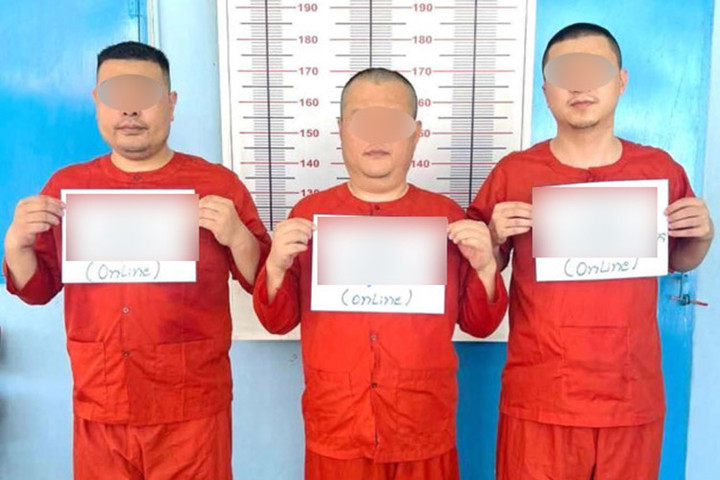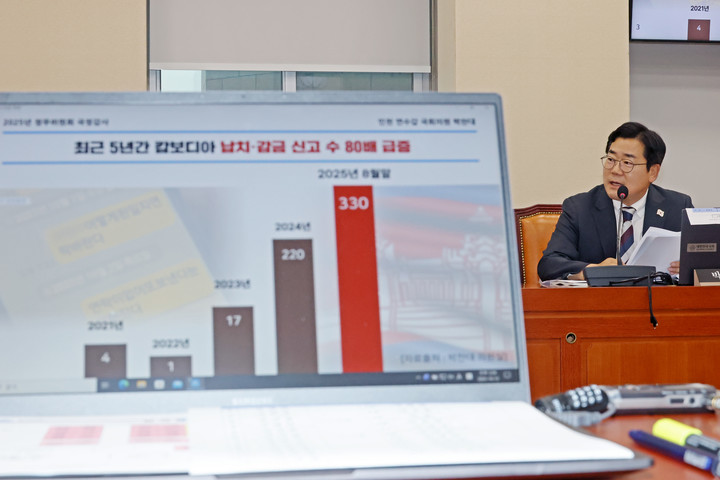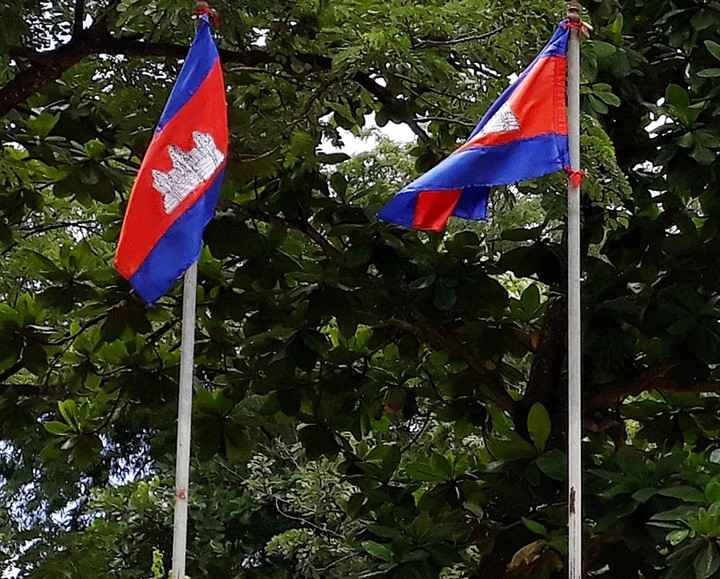Busan court reveals inner workings of organized crime group targeting Koreans through romance scams
Victims lost nearly 600 million won as call center workers faced severe working conditions and threats

As the case of the torture and death of a Korean university student in Cambodia draws attention, court rulings have shed light on the methods and activities of local crime syndicates operating so-called "romance scam" call centers.
According to the recent verdict by the Busan District Court’s Criminal Division 3 (Chief Judge Shin Jae-nam), these call centers in Cambodia have become highly organized, targeting Koreans through online scams. The court sentenced three Korean nationals in their 20s and 30s, including individual A, to prison terms ranging from two years and four months to three years and two months on charges of participating in a criminal organization and fraud.
A and his accomplices were found guilty of orchestrating a series of 119 fraudulent transactions from July 3 to July 24 last year, in which 13 victims were lured into sending approximately 580 million won (about USD 437,000) to the criminal syndicate through romance scam tactics.
A "romance scam" is a crime in which perpetrators use fake female profiles on social networking services to establish intimate relationships with victims and ultimately exploit them financially. According to the court documents, the criminal group is overseen by a Chinese ringleader and operates offices in Bavet, Cambodia, and Vientiane, Laos.
Many employees joined, lured by promises from existing workers that they could "make a lot of money working in cryptocurrency-related fields." Within the syndicate, members addressed one another exclusively by aliases, never revealing their true identities. The offices were heavily guarded, with five to six local security guards stationed at the building entrance and two to three armed guards on each floor, preventing any attempt to escape.


Call center workers were required to work twelve-hour shifts from 9 a.m. to 9 p.m. under strict surveillance, including CCTV monitoring their computer screens. Tardiness or leaving early resulted in fines, and underperformance led to extended work hours until 11 p.m. Personal mobile phones were banned during work, and communication even with colleagues was strictly prohibited.
To prevent unauthorized absences or escapes, the organization forced any member wishing to return to Korea to leave behind a friend as a hostage; only after another person arrived could the hostage depart. Members who wished to quit were subjected to a mandatory penalty of 10,000 US dollars (about 13 million won).
Judge Shin commented, "The social harm caused by these crimes is severe, and because the organization is based overseas, rooting it out is challenging, necessitating significant penalties." However, he noted that in consideration of the defendants’ full admission of guilt and the circumstances that prevented their immediate withdrawal from the crime group, the sentences were determined accordingly.
Meanwhile, according to the Ministry of Foreign Affairs, the number of reported kidnappings of Korean nationals in Cambodia rose sharply to 330 cases by August this year, representing more than 1.5 times last year’s figure of 220 cases.
Note “This article was translated from the original Korean version using AI assistance, and subsequently edited by a native-speaking journalist.”
Photo=Yonhap News
추천 뉴스
- 1 Intensified “Multidimensional Polarization” in Greater Seoul Real Estate Amid Surging Prices Despite an overall rise in apartment prices across the Greater Seoul area, a growing sense of “multidimensional polarization” is splitting market participants’ experiences.On October 13, real estate agency Jiptos released an analysis of metropolitan apartment transactions in the third quarter compar
- 2 South Korea’s Age Landscape Flips as Those in Their 20s Shrink Below the Over-70 Population The pulse of South Korean society—its population in their 20s—is steadily fading.According to the Population and Housing Census (Registered Census) results released by the National Statistical Office (formerly Statistics Korea) on October 12, the number of South Koreans in their 20s stood at 6.302 m
- 3 Jung So-min Stuns in All-Black Dress at "My Universe Marry Me" Press Conference Actress Jung So-min drew attention for her adorable beauty, shining through even in an all-black ensemble.On the afternoon of October 10, Jung So-min attended the press conference for the upcoming SBS drama “My Universe Marry Me,” held at the SBS Mokdong studios in Yangcheon-gu, Seoul.She was joined
- 4 Why $51 Million in Fines Against Google and Apple Remain on Hold for Two Years Choi Soo-jin, a member of the National Assembly's Science, ICT, Broadcasting, and Communications Committee, has pointed out that the sanction procedures for fines intended for Google and Apple have been stalled for nearly two years.The Broadcast Media Communications Commission—successor to the Korea
- 5 President Lee Jae-myung Highlights K-Food as the Core of Korean Culture on "Please Take Care of My Refrigerator" President Lee Jae-myung made a special appearance on the JTBC variety show "Please Take Care of My Refrigerator since 2014," expressing keen interest in the global potential of K-Food.The episode, airing on October 6, featured President Lee and First Lady Kim Hye-kyung as special guests. In the rele
- 6 Lim Young-woong Surpasses 12.5 Billion Streams During Chuseok Holiday Singer Lim Young-woong continues to set new records even during the Chuseok holiday, solidifying his status as one of Korea’s top music sensations.As of October 4, Lim Young-woong surpassed a cumulative 12.5 billion streams on Korea’s leading music platform Melon. The exact figure stood at 12,504,16
- 7 Hwang Yu-min Secures Direct Entry to the LPGA Tour with Four Consecutive Birdies Hwang Yu-min has realized her dream of joining the LPGA Tour, earning her tour card with an electrifying performance in Hawaii that saw her finish the Lotte Championship with a string of four consecutive birdies, bypassing the need for the grueling Q-Series qualifier.On October 5 (KST), at Hoakalei
- 8 Mother of Former MBC Weathercaster Ends 27-Day Hunger Strike After Reaching Agreement; MBC to Issue Official Apology Jang Yeon-mi, the mother of late former MBC weathercaster Oh Yo-anna, has ended her prolonged hunger strike after reaching a preliminary agreement with MBC, the broadcasting company. Civic groups Ending Credit and Workplace Gabjil 119 announced on the 5th that Jang had agreed to end her 27-day-long
- 9 BTS and Other Masked Singers Shine on King of Masked Singer, Drawing High Praise from Yoo Young-seok In the latest episode of MBC's "King of Masked Singer," which aired on the afternoon of the 5th, masked singers with impressive credentials—one of whom once stood alongside global superstars BTS—took center stage, captivating viewers and panelists alike.One masked performer left the audience and jud
- 10 Volleyball Legends Kim Yeon-koung and Coach Kim Ho-cheol Face Off in "Rookie Coach Kim Yeon-koung" Legendary volleyball player Kim Yeon-koung is set to go head-to-head with veteran coach Kim Ho-cheol.The highly anticipated second episode of MBC’s variety show “Rookie Coach Kim Yeon-koung,” airing on October 5, will capture the encounter between newcomer coach Kim Yeon-koung and the 30-year vetera
